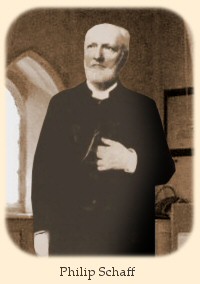So in Rome, they claim at the Last Supper when Jesus said "Do this in memory of Me" - that was Him ordaining them as priests. Now that's a pretty huge interpretation (or reverse engineering) to me. So I think we agree, there are no Christian priests other than priesthood of all believers and Jesus our high priest.
Now here is a stumbling block, as Jesus taught us to look for fruit, and a tree is know by it's fruit. All of the churches I have been to that teach real presence - multiple Catholic ones and one Lutheran - are literally deader than a door nail! Congregations are super old, pastors are not good preachers, not much community and not very welcoming or evangelistic.
How can these people be consuming our Lord, and look like this? While at the same time the non-Denom churches in town are growing, have more youth, better preaching, even prison ministry that is changing lives. I saw a guy preach that was in prison not too long ago, and he's amazing, and reached by prison ministry of the non-denominational church.
It's too wide spread of a thing to be coincidence.
So here is my connection. The idea that we need Christian mediator priests saturated the whole church for centuries, yet was wrong - can we agree on that?
Then it seems just as possible, and actually the two were connected - that the idea of physical presence was wrong too. And the Supper is exactly what Jesus said - a memorial.
Well, it's a lot more complex than this. But if we were to simply look at the words of institution, we can see that they do in fact teach the real presence. That is, when Jesus said: "This is my body" and "this is my blood", we cannot take this figuratively according to the grammar that's being used, and as I mentioned in my previous post, the broader context also demands it. Now, if we were to restrain ourselves to only the words of institution, I can appreciate that the grammatical point is not easy for us to grasp in our time, as we tend to be very influenced by rationalism and Zwinglian doctrine, which is what Baptist and charismatic churches have inherited, and they wield a lot of influence in our day.
But consider the sentence: "This is my body". If this is merely figurative, which word exactly is the figurative one? Our Lord does not say "This represents my body" or "This is like my body", but "This is my body."
It can be helpful to contrast the sentence with a different example: Suppose we could say: “Caiaphas is a snake.” (Matthew 3:7, Matthew 26:57-68). The meaning being that, because he is a Pharisee, he is characterised as a snake. So we can deduce from the expression that he is deceptive and harmful, and that his doctrine is poisonous. But the figurative element in this sentence is not the word “is”, nor “Caiaphas”. Rather, it’s the word “snake”. “Is” can’t be “represents”. The sentence “Caiaphas is a snake” is not interchangeable with “Caiaphas represents a snake”. That becomes “X symbolises something symbolical”, and that’s not intelligible. That’s not how parables are arranged.
And suppose you translate “is” into “is like”, so from “Caiaphas is a snake” to “Caiaphas is like a snake”, there’s still a grammatical problem. You can say “A tiger is like a lion”, and you can reverse it by saying “a lion is like a tiger.” The meaning could be the same. But you can’t reverse “Caiaphas is like a snake” to “A snake is like Caiaphas”, because the word “snake” is figurative. This is to say that in ordinary parabolic speech, the metaphor should be in the predicate, in this case, “snake”, not in the subject, in this case, “Caiaphas”.
Even in a parabolic expression where the subject is figurative, the word “is” cannot be “symbolises”. An example of this could be Luke 8:11, where it reads:
“Now the parable is this: The seed is the word of God.” The word “seed” here is not a physical thing that represents anything — it doesn’t represent God’s Word, it
is God’s Word.
Or some may argue, for example, looking at a crucifix and say: “This is Jesus”, when it’s actually just an artistic representation of Him. But as Luther points out — to say “this is my body” is not interchangeable with “this is a likeness of my body”.
Still, perhaps the most common argument against the real presence is that the words of institution — “this is my body; this is my blood” are comparable to the “I AM” statements in John. But that’s not true, because while our Lord uses expressions, those statements are literal. For example:
"So Jesus again said to them, “Truly, truly, I say to you, I am the door of the sheep." (John 10:7)
Jesus does not
symbolise the door. Nor is He
like a door. No, He truly
is the door; the door of salvation. He’s not a symbol of a door, nor is He a symbol of the door of salvation, as if salvation was through some other thing, of which He’s merely a symbol of.
This point gets clearer with the other I AM statements, and particularly this:
Jesus said to him, “I am the way, and the truth, and the life. No one comes to the Father except through me.” (John 14:6)
Is Jesus saying that He is
not the way, but only
like the way? Is He just a
symbol of the real way? Again, does Jesus claim to merely
represent the truth? Is He
like the truth, but not
actually the truth? Again, does Jesus merely
signify life? Is life found through some
other person or means? No, these statements are all literal. Jesus IS the way, He IS the truth, and He IS the life.
Now, I can go on, but I'm mindful of how wordy this post is already. But hopefully this can help illustrate some of the complexity regarding the Eucharist, and that it's not as simple as many would have it.
I'd like to finish with a bit of history that I think may be helpful: This grammatical point I've expressed above presents a great problem for those who hold to memorialism, for this was recognised even by Zwingli himself, who, in some ways, is the first to deny the real presence. Although he tried to find ways around this problem, he finally admitted that he was unable to draw his conclusion from the Bible, but instead resorted to philosophy, namely, the idea:
"That which is finite cannot contain that which is infinite." And while that seems logical, it's a deeply problematic statement when applied to Jesus, because Jesus is fully man and fully God.
"For in Him dwells all the fullness of the Godhead bodily." (Colossians 2:9)
The words of institution and the context demands the real presence, and this is also why the early church believed and taught the same. Now, how Apostolic Succession comes into that has no bearing on what the Bible teaches, because Apostolic Succession is clearly from tradition and not Scripture.
Hopefully that can help shed some light on the complexity of all of this!
God bless!



